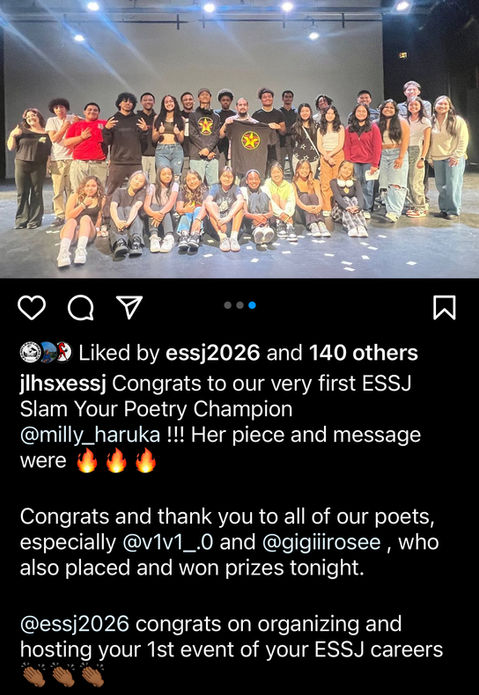top of page
What does
ESSJ do?
As a small learning community within the larger campus that is James Logan High School, ESSJ strives to create a humanizing educational space that allows students to build a sense of community, support, and solidarity. This is achieved through a rigorous curriculum and supplemental (usually student-led) activities, events, and campaigns. In our short history here at Logan, ESSJ has been able to positively impact student culture, be an advocate for mental health awareness, and with increased critical consciousness our scholars have taken it upon themselves to become active in the community and be real agents for positive social change.
We're not just about the serious stuff...

03:20

02:59

03:54

03:04

03:50

03:37

03:01

01:54
bottom of page





















